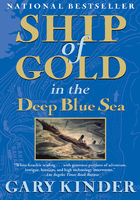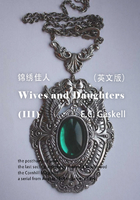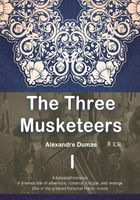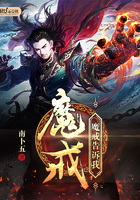He woke, paralyzed by a sense of catastrophe. He blinked in the dark, immobilized, imprisoned in a web, about to be devoured by a hairy insect covered with eyes. At last he managed to stretch his hand toward the bedside table where he kept the revolver and the loaded submachine gun. But instead of a weapon he grasped the alarm clock: ten to four. He exhaled. Now, at last, he was fully awake. Nightmares again? He still had a few minutes: he was obsessive about punctuality and did not get out of bed before four o'clock. Not a minute before, not a minute after.
"I owe everything I am to discipline," he thought. And discipline, the polestar of his life, he owed to the Marines. He closed his eyes. The entrance tests at San Pedro de Macorís for the Dominican National Police, a force the Yankees decided to create in the third year of the occupation, were very hard. He passed with no difficulty. During training, half of the candidates were eliminated. He relished every exercise demanding agility, boldness, audacity, or stamina, even the brutal ones that tested your will, your obedience to a superior, plunging into mudholes with a full field pack or surviving in the wild, drinking your own urine and chewing on stalks, weeds, grasshoppers. Sergeant Gittleman gave him the highest rating: "You'll go far, Trujillo." And he had, thanks to the merciless discipline of heroes and mystics taught to him by the Marines. He thought with gratitude of Sergeant Simon Gittleman. A loyal, disinterested gringo in a country of hagglers, bloodsuckers, and assholes. Had the United States had a more sincere friend than Trujillo in the past thirty-one years? What government had given them greater support in the UN? Which was the first to declare war on Germany and Japan? Who gave the biggest bribes to representatives, senators, governors, mayors, lawyers, and reporters in the United States? His reward: economic sanctions by the OAS to make that nigger Rómulo Betancourt happy, to keep sucking at the tit of Venezuelan oil. If Johnny Abbes had handled things better and the bomb had blown off the head of that faggot Rómulo, there wouldn't be any sanctions and the asshole gringos wouldn't be handing him bullshit about sovereignty, democracy, and human rights. But then he wouldn't have discovered that in a country of two hundred million assholes, he had a friend like Simon Gittleman. Capable of initiating a personal campaign in defense of the Dominican Republic from Phoenix, Arizona, where he had been in business since his retirement from the Marines. And not asking for a cent! There still were men like that in the Marines. Not asking, not charging for anything! What a lesson for those leeches in the Senate and the House of Representatives he'd been feeding for years; they always wanted more checks, more concessions, more decrees, more tax exemptions, and now, when he needed them, they pretended they didn't know him.
He looked at the clock: four minutes to go. A magnificent gringo, that Simon Gittleman! A real Marine. Indignant at the offensive against Trujillo by the White House, Venezuela, and the OAS, he gave up his business in Arizona and bombarded the American press with letters, reminding everyone that during all of the Trujillo Era the Dominican Republic had been a bulwark of anti-Communism, the best ally of the United States in the Western Hemisphere. Not satisfied with that, he funded—out of his own damn pocket!—support committees, paid for publications, organized conferences. And to set an example, he came to Ciudad Trujillo with his family and rented a house on the Malecón. This afternoon Simon and Dorothy would have lunch with him in the Palace, and the ex-Marine would receive the Juan Pablo Duarte Order of Merit, the highest decoration the Dominican Republic could bestow. A real Marine, yes sir!
Four sharp, now it was time. He turned on the lamp on the night table, put on his slippers, and got up, without the old agility. His bones ached and he felt pains in his leg and back muscles, the way he had a few days ago at Mahogany House, on that damn night with that anemic little bitch. He ground his teeth in annoyance. He was walking to the chair where Sinforoso had laid out his sweat suit and gym shoes when a suspicion stopped him cold. Anxiously he inspected the sheets: the ugly grayish stain befouled the whiteness of the linen. It had leaked out, again. Indignation erased the unpleasant memory of Mahogany House. Damn it! Damn it! This wasn't an enemy he could defeat like the hundreds, the thousands he had confronted and conquered over the years, buying them, intimidating them, killing them. This lived inside him, flesh of his flesh, blood of his blood. It was destroying him at precisely the time he needed to be stronger and healthier than ever. That skinny little cunt had brought him bad luck.
He found his jockstrap, shorts, and undershirt, immaculately washed and ironed, along with his exercise shoes. He dressed with great effort. He never had needed much sleep: when he was a young man in San Cristóbal, when he was the head of the rural guards on the Boca Chica sugar plantation, four or five hours had been enough, even if he had been drinking and fucking till dawn. His ability to recover physically with a minimum of sleep contributed to his aura of superiority. Not anymore. He woke exhausted and couldn't sleep for even four hours; two or three at the most, and those plagued by nightmares.
The night before, he lay sleepless, in the dark. Through the window he could see the tops of trees and a piece of sky studded with stars. From time to time, in the clear night, he heard the chatter of those old biddies, night owls declaiming poems by Juan de Dios Peza, Amado Nervo, Rubén Darío (which made him suspect that among them was the Walking Turd, who knew Darío by heart), Pablo Neruda's Twenty Poems of Love, and the risqué stanzas of Juan Antonio Alix. And, of course, the verses of Do?a María, the Dominican writer and moralist. He laughed aloud as he climbed on the stationary bike and began to pedal. His wife had ended up taking herself seriously, and periodically would organize literary evenings in the skating rink at Radhamés Manor and bring in actresses to recite dumb-ass poems. Senator Henry Chirinos, who passed himself off as a poet, would participate in these soirees, feeding his cirrhosis at public expense. To ingratiate themselves with María Martínez, those bitches, just like Chirinos himself, had memorized entire pages of her Moral Meditations or speeches from her theater piece, False Amity. They recited them, and then the biddies applauded. And his wife—for that fat, stupid old woman, the Bountiful First Lady, was his wife—had taken the business about being a writer and moralist seriously. And why not? Didn't the newspapers, the radio, the television say so? Wasn't Moral Meditations, with a prologue by the Mexican José Vasconcelos, required reading in the schools, and wasn't it reprinted every two months? Hadn't False Amity been the greatest stage hit in the thirty-one years of the Trujillo Era? Hadn't the critics and reporters, the university professors, priests, and intellectuals, praised her to the skies? Didn't they devote a seminar to her at the Trujillonian Institute? Hadn't her concepts been acclaimed by the bishops, those traitorous crows, those Judases, who after living out of his wallet were talking now, just like the Yankees, about human rights? The Bountiful First Lady was a writer and a moralist. No thanks to her, but to him, like everything else that had happened in this country for the past three decades. Trujillo could turn water into wine and multiply loaves of bread if he fucking well felt like it. He reminded María of this during their last argument: "You forget you didn't write that shit, you can't even write your name without making grammatical mistakes, it was that Galician traitor José Almoina, paid by me. Don't you know what people say? That the first letters of False Amity, F and A, stand for Find Almoina." He laughed again, open, joyful laughter. His bitterness had vanished. María burst into tears—"How you humiliate me!"—and threatened to complain to Mama Julia. As if his poor ninety-six-year-old mother was in any shape for family arguments. Like his own brothers and sisters, his wife was always running to the Sublime Matriarch to cry on her shoulder. To make peace, he'd had to cross her palm again. What Dominicans whispered was true: the writer and moralist was a grasping, avaricious soul. And had been from the time they were lovers. When she was still a girl she'd thought of setting up a special laundry for the uniforms of the Dominican National Police, and made her first money.
Pedaling warmed his body. He felt in shape. Fifteen minutes: enough. Another fifteen of rowing before he began the day's battle.
The rowing machine was in a small adjoining room filled with exercise equipment. He had begun rowing, and then a horse's whinny vibrated in the silence of dawn, long and musical, like a joyful paean to life. How long since he'd ridden? Months. He had never tired of it, after fifty years it still excited him, like his first sip of Carlos I Spanish brandy or his first sight of the naked, white, voluptuous body of a woman he desired. But this thought was poisoned by the memory of the skinny little thing that son of a bitch had managed to get into his bed. Did he do it knowing he would be shamed? No, he didn't have the balls for that. She probably told him about it and gave him a good laugh. It must be making the rounds now of all the gossipmongers in the coffee shops along El Conde. He trembled with mortification and rage as he rowed in a steady rhythm. He was sweating now. If they could see him! Another myth they repeated about him was: "Trujillo never sweats. In the worst heat of summer he puts on those woolen uniforms, with a velvet three-cornered hat and gloves, and you never see a drop of sweat on his forehead." He didn't sweat if he didn't want to. But when he was alone, when he was doing his exercises, he gave permission to his body to perspire. Recently, during this difficult time, with so many problems, he had denied himself his horses. Maybe this week he'd go to San Cristóbal. He'd ride alone, under the trees, along the river, like in the old days, and feel rejuvenated. "Not even a woman's arms are as affectionate as the back of a chestnut."
He stopped rowing when he felt a cramp in his left arm. He wiped his face and looked down at his pants, at his fly. Nothing. It was still dark outside. The trees and shrubs in the gardens of Radhamés Manor were inky stains under a clear sky crowded with twinkling lights. What was that line of Neruda's that the moralist's babbling friends liked so much? "And stars tremble blue in the distance." Those old women trembled when they dreamed that some poet would scratch their itch. And all they had near at hand was Chirinos, that Frankenstein. Again he laughed out loud, something that did not happen very often these days.
He undressed and, wearing slippers and a robe, went to the bathroom to shave. He turned on the radio. They read the newspapers on the Dominican Voice and Caribbean Radio. Until a few years ago the news bulletins had begun at five. But when his brother Petán, the owner of the Dominican Voice, found out that he woke at four, he moved the newscasts up an hour. The other stations followed suit. They knew he listened to the radio while he shaved, bathed, and dressed, and they were painstakingly careful.
The Dominican Voice, after a jingle for El Conde Hotel Restaurant announcing a night of dancing to Los Colosos del Ritmo under the direction of Maestro Gatón and featuring the singer Johnny Ventura, highlighted the Julia Molina Widow of Trujillo Prize to the Most Prolific Mother. The winner, Do?a Alejandrina Francisco, who had twenty-one living children, declared when she received the medal with the portrait of the Sublime Matriarch: "My twenty-one children will give their lives for the Benefactor if they are asked to."
"I don't believe you, bitch."
He had brushed his teeth and now he was shaving as meticulously as he always had, ever since he was a kid in a shantytown in San Cristóbal. Back when he didn't even know if his poor mother, to whom the entire country now paid homage on Mother's Day ("A wellspring of loving-kindness and mother of the preeminent man who governs us," said the announcer), would have beans and rice that night to feed the eight mouths in her family. Cleanliness, caring for his body and his clothing, had been, for him, the only religion he practiced faithfully.
After another long list of visitors to the home of Mama Julia, to whom they would pay their respects on Mother's Day (poor old woman, serenely receiving a caravan of schools, associations, institutes, unions, and thanking them in her faint little voice for their flowers and courtesy), the attacks began on Bishops Reilly and Panal, "who neither were born under our sun nor suffered under our moon" ("Nice," he thought), "and who meddle in our civil and political life, overstepping the bounds into the terrain of the criminal." Johnny Abbes wanted to go into Santo Domingo Academy and drag the Yankee bishop out of his refuge. "What can happen, Chief? The gringos will protest, naturally. Haven't they protested everything for a long time now? Galíndez, Murphy the pilot, the Mirabal sisters, the attempt on Betancourt, and a thousand other things. It doesn't matter if the dogs bark in Caracas, Puerto Rico, Washington, New York, Havana. What happens here is what matters. The crows in their cassocks won't stop conspiring until they've been scared out of it." No. It wasn't time yet to settle the score with Reilly or that other son of a bitch, that shitty little Spaniard Bishop Panal. The time would come, they would pay. His instincts never deceived him. For now he wouldn't touch a hair on their heads, even if they kept fucking with him, like they'd been doing since Sunday, January 24, 1960—a year and a half already!—when the Bishops' Pastoral Letter was read at every Mass, inaugurating the campaign of the Catholic Church against the regime. Backbiters! Crows! Eunuchs! Doing that to him, a man who had been decorated in the Vatican by Pius XII with the Great Cross of the Papal Order of St. Gregory. On the Dominican Voice, Paíno Pichardo, in a speech delivered the night before in his capacity as Minister of the Interior and Religious Practice, recalled that the state had spent sixty million pesos on the Church, whose "bishops and priests are now doing so much harm to the Catholic faithful of the Dominican Republic." He turned the dial. On Caribbean Radio they were reading a letter of protest from hundreds of workers because their signatures had not been included on the Great National Manifesto "against the disturbing machinations of Bishop Thomas Reilly, a traitor to God, Trujillo, and his own manhood, who, instead of remaining in his diocese of San Juan de la Maguana, ran like a scared rat to hide in Ciudad Trujillo behind the skirts of American nuns at Santo Domingo Academy, a vipers' nest of terrorism and conspiracy." When he heard that the Ministry of Education had deprived Santo Domingo Academy of its accreditation because "the foreign nuns were in collusion with the terrorist plotting of the Bishops of San Juan de la Maguana and La Vega against the State," he turned back to the Dominican Voice in time to hear the announcer report another victory for the Dominican polo team in Paris, where, "on the beautiful field of Bagatelle, after defeating the Leopards five to four and dazzling the assembled connoisseurs, it was awarded the Aperture Cup." Ramfis and Radhamés, the most applauded players. A lie, to beguile Dominicans. And him. In the pit of his stomach he felt the rush of acid that attacked every time he thought about his sons, those successful failures, those disappointments. Playing polo in Paris and fucking French girls while their father was fighting the battle of his life!
He dried his face. His blood turned to vinegar whenever he thought of his sons. By God, it wasn't his fault. His line was healthy, he was a sire of thoroughbreds. The proof was there, in the children his seed had created in other wombs, in the belly of Lina Lovatón, for instance: robust, energetic men, a thousand times more deserving of the place occupied by those two drones, a pair of nonentities named after characters in an opera. Why had he allowed the Bountiful First Lady to give his sons names out of Aida, that damn opera she saw in New York? Those names had brought them bad luck, turned them into operetta buffoons instead of real men. Bums, idlers without character or ambition, all they were good for was getting drunk. They took after his brothers, not him; they were as useless as Blacky, Petán, Peepee, Aníbal, that collection of crooks, parasites, derelicts, and losers. None of them had a millionth of his energy, his will, his vision. What would happen to this country when he died? He was sure Ramfis wasn't even as good in bed as all the asslickers said he was. So he fucked Kim Novak! He fucked Zsa Zsa Gabor! He stuck it to Debra Paget and half the actresses in Hollywood! Big deal. If he gave them Mercedes-Benzes, Cadillacs, mink coats, even Crazy Valeriano would be fucking Miss Universe and Elizabeth Taylor. Poor Ramfis. He suspected that his son didn't even like women very much. He liked the appearance, he liked people to say he was the best lover in the country, better even than Porfirio Rubirosa, the Dominican known all over the world for the size of his prick and his prowess as an international cocksman. Was the Great Fucking Machine playing polo with his sons on the field of Bagatelle? The fondness he had felt for Porfirio ever since he'd joined his corps of military adjutants, a feeling he still had despite the failed marriage to his oldest daughter, Flor de Oro, improved his mood. Porfirio had ambition and he had fucked great cunts, from the Frenchwoman Danielle Darrieux to the multimillionaire Barbara Hutton, without giving them so much as a bouquet of flowers; instead he squeezed them and became rich at their expense.
He filled the tub with bath salts and bubbles and sank into the water with the same intense satisfaction he felt every dawn. Porfirio always led the good life. His marriage to Barbara Hutton lasted a month, the indispensable time for getting a million dollars from her in cash and another million in property. If Ramfis or Radhamés were at least like Porfirio! That walking cock spurted ambition. And, like every conquering hero, he had enemies. They were always coming to him with gossip, advising him to get Rubirosa out of the diplomatic service because the scandals were a stain on the national image. They were jealous. What better propaganda for the Dominican Republic than a cocksman like him? From the time of his marriage to Flor de Oro, they had wanted him to tear off the head of the mulatto fuck who'd seduced his daughter and won his admiration. He wouldn't do it. He knew who the traitors were, he could smell them out before they even knew they were going to betray him. That's why he was still alive and so many Judases were rotting in La Cuarenta, La Victoria, on Beata Island, in the bellies of sharks, or fattening Dominican earthworms. Poor Ramfis, poor Radhamés. Just as well that Angelita had some character and stayed with him.
He got out of the tub and took a fast shower. The contrast between hot and cold water revitalized him. Now he was full of energy. As he applied deodorant and talc, he listened to Caribbean Radio, which expressed the ideas and slogans of the "malevolent brain," his name for Johnny Abbes when he was in a good mood.
There was a ranting attack on "the rat of Miraflores, that Venezuelan scum," and the announcer, assuming the proper voice for talking about a faggot, stated that in addition to starving the Venezuelan people, President Rómulo Betancourt had brought misfortune to Venezuela, for hadn't another plane of Venezuelan Airlines just crashed, at a cost of sixty-two fatalities? The fucking queer wouldn't get his way. He had convinced the OAS to impose sanctions, but he who laughs last laughs best. None of them worried him—the rat of Miraflores Palace, the Puerto Rican junkie Mu?oz Marín, the Costa Rican bandit Figueres. But the Church did. Perón had warned him, when he left Ciudad Trujillo on his way to Spain: "Watch out for the priests, Generalissimo. It wasn't the fat-bellied oligarchs or the military who brought me down; it was the crows. Make a deal with them or get rid of them once and for all." They weren't going to bring him down. What they did was fuck with him. Starting on that black January 24 in 1960, exactly sixteen months ago, they fucked with him every day. Letters, memorials, Masses, novenas, sermons. Everything those shits in cassocks said and did against him resonated overseas, where the newspapers, radios, and televisions talked of Trujillo's imminent fall now that "the Church had turned its back on him."
He put on his shorts, undershirt, and socks, which Sinforoso had folded the night before and placed next to the closet, beside the hanger with the gray suit, white shirt, and blue tie with white flecks that he would wear this morning. How did Bishop Reilly spend his days and nights inside Santo Domingo Academy? Fucking the nuns? They were hideous, some had hair on their faces. He remembered Angelita studying at that school, the one for decent people. His granddaughters too. The nuns had worshiped him until the Pastoral Letter. Maybe Johnny Abbes was right and it was time to act. Since the manifestos, articles, and protests on radio and television, in various institutions, and in the Congress hadn't taught them a lesson, strike the blow. The people did it! Overran the guards placed there to protect the foreign bishops, broke into Santo Domingo Academy and the bishop's palace in La Vega, dragged the gringo Reilly and the Spaniard Panal out by the hair, and lynched them. Avenged the insult to the nation. Regrets and excuses would be sent to the Vatican, to the Holy Father John Asshole—Balaguer was a master at writing them—and the punishment of a handful of those responsible, chosen from among common criminals, would be exemplary. Would the other crows learn their lesson when they saw the bishops' bodies drawn and quartered by popular wrath? No, it wasn't the right time. He wouldn't give Kennedy an excuse for making Betancourt, Mu?oz Marín, and Figueres happy by ordering an invasion. Keep a cool head and proceed with caution, like a Marine.
But the dictates of reason did not convince his glands. He had to stop dressing, blinded by a rage that flooded his entire body, a river of lava rising to his brain, which seemed to be on fire. He closed his eyes and counted to ten. Rage was bad for the government and bad for his heart, it would give him a coronary. The other night, in Mahogany House, it had brought him to the verge of an attack. He began to regain his composure. He always knew how to control his anger, when he had to: dissimulate, pretend to be cordial and affectionate with the worst human trash, the widows, children, brothers and sisters of traitors, if necessary. That's why he had been carrying the weight of a country on his shoulders for almost thirty-two years.
He was involved in the complicated task of securing his socks with garters so there would be no wrinkles. Now, how pleasant it was to give free rein to his rage when there was no risk to the State, when he could give rats, toads, hyenas, snakes what they deserved. The bellies of sharks bore witness to the fact that he had not denied himself the pleasure. Wasn't the Galician traitor José Almoina a corpse in Mexico? And the Basque Jesús de Galíndez, another serpent who bit the hand that fed him? And Ramón Marrero Aristy, who thought that because he was a famous author he could write articles in The New York Times against the government that paid for his drunken binges, his books, his whores? And the three Mirabal sisters who played at being Communist heroines, weren't they there too, proof that when he let loose the flood of his rage no dam could contain it? Even Valeriano and Barajita, the crazy couple on El Conde, could testify to that.
He sat holding his shoe, remembering the celebrated pair. A real institution in the colonial city. They lived under the laurels in Colón Park, between the arches of the cathedral, and when they were most affluent they would appear in the doorways of the elegant shoe shops and jewelry stores on El Conde, doing their crazy act so that people would toss them a coin or something to eat. He had often seen Valeriano and Barajita, in their rags and absurd adornments. When Valeriano thought he was Christ, he would drag a cross; when he was Napoleon, he would brandish his broomstick, bellow orders, and charge the enemy. One of Johnny Abbes's caliés reported that Crazy Valeriano had started to make fun of the Chief, calling him the Cop. He was curious. He went to spy on them from a car with tinted windows. The old man, his chest covered with little mirrors and beer bottle caps, strutted around with the air of a clown, displaying his medals to a horrified crowd that did not know whether to laugh or run away. "Applaud the Cop, you assholes," screamed Barajita, pointing to the gleaming chest of the madman. Then he felt the heat run through his body, blinding him, urging him to punish their audacity. He gave the order on the spot. But the next morning, thinking that crazy people don't really know what they're saying and that instead of punishing Valeriano he ought to catch the comedians who had told the couple what to say, on a dark dawn like this one he told Johnny Abbes: "Crazy people are just crazy. Let them go." The head of the Military Intelligence Service, the SIM, grimaced: "Too late, Excellency. We threw them to the sharks yesterday. Alive, just as you ordered."
He stood, his shoes on his feet. A statesman does not repent his decisions. He had never repented anything. He would throw those two bishops to the sharks, alive. He began the stage of his morning ritual that he performed with real delight, recalling a novel he read when he was young, the only one he ever thought about: Quo Vadis? A tale of Romans and Christians. He never forgot the image of the refined and wealthy Petronius, Arbiter of elegance, who revived each morning thanks to massages and ablutions, ointments, essences, perfumes, and his slave girls' caresses. If he had the time, he would do what the Arbiter did: spend the entire morning in the hands of masseuses, pedicurists, manicurists, barbers, bathers, after the exercises for stimulating his muscles and activating his heart. He had a short massage at midday, after lunch, and a more leisurely one on Sundays, when he could spare two or three hours from his pressing obligations. But the times weren't right for relaxing with the sensual delights of the great Petronius. He had to be content with the ten minutes he spent applying the perfumed Yardley deodorant that Manuel Alfonso sent to him from New York—poor Manuel, how could he go on, after his operation?—and the gentle French moisturizing cream Bienfait du Matin, and the cologne, also Yardley, with the light meadow scent, that he rubbed on his chest. When his hair was combed and he had touched up the ends of the thin brush mustache he had worn for twenty years, he powdered his face generously until he had hidden under a delicate whitish cloud the dark tinge of the Haitian blacks who were his maternal ancestors, something he had always despised on other people's skin, and on his own.
He was dressed, with jacket and tie, at six minutes to five. He checked this with satisfaction: he never went past the hour. It was one of his superstitions; if he did not walk into his office at five sharp, something bad would happen that day.
He went over to the window. It was still dark, as if it were midnight. But he saw fewer stars than he had an hour earlier. They were shining less bravely. Day was about to break and soon they'd run away. He picked up a walking stick and went to the door. As soon as he opened it, he heard the heels of the two military adjutants.
"Good morning, Excellency."
"Good morning, Excellency."
He responded with a nod. At a glance he could tell that they were dressed correctly. He did not allow slovenliness or disorder in any officer or man in the Armed Forces, but among the adjutants, the unit responsible for guarding him, a missing button, a spot or wrinkle on trousers or tunic, a carelessly placed visored cap were grave faults punishable by several days of rigorous discipline and, at times, expulsion and a return to the regular battalions.
A light breeze stirred the trees of Radhamés Manor as he passed, and he heard the whisper of the leaves and, from the stable, another whinnying horse. Johnny Abbes, a report on the progress of the campaign, a visit to San Isidro Air Base, a report from Chirinos, lunch with the Marine, three or four audiences, a meeting with the Minister of the Interior and Religious Practice, a meeting with Balaguer, a meeting with Cucho álvarez Pina, president of the Dominican Party, and a walk along the Malecón after he had visited Mama Julia. Would he sleep in San Cristóbal to take away the bad taste of the other night?
He walked into his office, in the National Palace, when his watch said five. Breakfast was on his desk—fruit juice, buttered toast, fresh-brewed coffee—with two cups. And, getting to his feet, the flabby silhouette of the director of the Intelligence Service, Colonel Johnny Abbes García:
"Good morning, Excellency."















